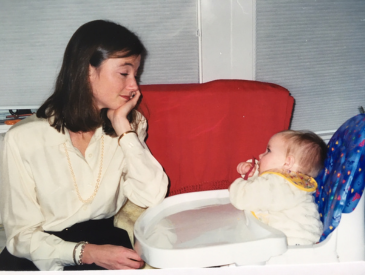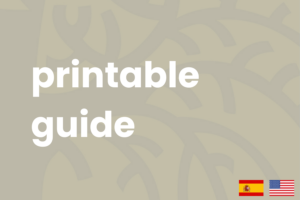Communicating About the Diagnosis
Your child’s diagnosis is important to your family, and also to those who care for you, including extended family, friends and co-workers. Communicating about your child’s condition gives others the opportunity to support you as you process the information and begin to face what lies ahead. At the same time, you may worry that speaking with others will invite unwanted judgement or advice. You may be concerned that you will be expected to attend to others’ reactions while you are managing your own. There is no right time or one method for sharing this news. As your child’s caregiver you can decide when, how and what to share.

Your Team:
A mental health professional who specializes in bereavement and loss.
A specialist whose aim is to improve the quality of life of their patients over the course of their illness regardless of stage, by relieving pain and other symptoms of that illness.
A mental health professional who uses therapy and other strategies to support coping and adjustment and treat concerns regarding social, emotional, or behavioral functioning.
A trained professional who works with people, groups and communities to help them better their lives.
A specialist in evaluation, diagnosis, and management of patients with hereditary conditions.
Depending on the condition, a genetic counselor or medical provider can suggest language to use. A psychologist, social worker, or palliative care clinician can provide space for talking through your concerns about sharing your child’s diagnosis.
Consider why it is you want to share. Naturally, you are hoping for love and empathy. Keeping this goal in mind can help you determine when, how, and how much to tell. Some families communicate about the diagnosis after they have had time to adjust to the information themselves, while some share the diagnosis immediately. You may feel obligated to share with others if they have been very involved in the diagnosis journey, but the decision still is entirely up to you.
If your child’s condition is inherited, a genetic counselor can help draft a family letter that summarizes the gene and the familial genetic variations. Once they have the information, your family members can decide how they wish to proceed (and it is entirely possible that they won’t all proceed in the same way).
– Lindsay, parent of Quinlan
Talking to Your Child
Talking to Siblings
Communicating at Work
You may wish to start by being factual: this is what has occurred; this is what we know; this is my plan and what I need in order to work (for example, working from home, going to part-time, etc.). The section on Work offers more details on how to navigate work and associated feelings and challenges.
Communicating to Your Community
It is acceptable to share information in stages, and doing so may help keep you from feeling overwhelmed. Perhaps sharing that your child has inherited a genetic condition, or that it is progressive, or that it affects certain organ systems, is sufficient for any given moment. It is also acceptable to say that you are still digesting the information and learning, and that you will share more details when you’re ready. It is likely that people will have many questions for you, but you don’t have to answer until you’re ready.
Over time, a less detailed letter or email, or series of communications to your community, will allow you to share as much (or as little) as you wish. You can share online resources or offer other information you have learned. Some families use social media as their method of sharing and communication regarding how their child and their family are doing; others prefer more privacy. There are no rights or wrongs; only what you feel is in your and your family’s best interest.
Related Resources
-
 Delivering the diagnosis to her mother: “I wanted to control the blast because I was the epicenter.”video
Delivering the diagnosis to her mother: “I wanted to control the blast because I was the epicenter.”video -
 Dear Colleagues on ZoomBLOG
Dear Colleagues on ZoomBLOG -
 For Grandparents and Extended Family of Children with Serious Illnessguide
For Grandparents and Extended Family of Children with Serious Illnessguide -
 The early months post-diagnosis: grief, therapy, identityvideo
The early months post-diagnosis: grief, therapy, identityvideo -
 The communication piece is very important.video
The communication piece is very important.video